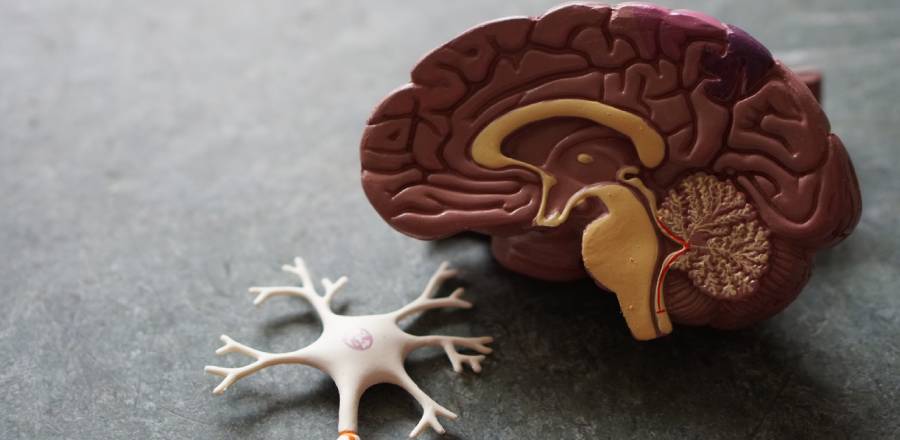The vagus nerve is a vital part of the body’s nervous system and plays an essential role in regulating many bodily functions. When this nerve is overactive or stimulated, it can lead to anxiety, stress, and other health problems. However, there are various ways to relax the vagus nerve and promote overall wellness. In this article, we will explore some of the most effective methods to relax the vagus nerve and promote relaxation and overall health.
- Understanding the Vagus Nerve: What Is It and How Does It Work?
- Symptoms of Vagus Nerve Dysfunction: How to Identify Them
- Importance of Relaxing the Vagus Nerve: Benefits for Mental and Physical Health
- Techniques to Stimulate the Vagus Nerve: Simple and Effective Ways to Promote Relaxation
- Breathing Exercises: How to Use Your Breath to Relax Your Vagus Nerve
- Yoga and Meditation: The Benefits of Mindful Practices for Vagus Nerve Health
- Diet and Nutrition: Foods That Promote Vagus Nerve Relaxation and Optimal Health
- Lifestyle Changes: How to Make Simple Adjustments to Promote Vagus Nerve Relaxation
- Holistic Therapies: Alternative Approaches to Relaxing the Vagus Nerve
- Seeking Professional Help: When to Consult a Healthcare Practitioner
Table of Contents
Understanding the Vagus Nerve: What Is It and How Does It Work?
The vagus nerve is the longest nerve in the body, running from the brainstem down through the chest and abdomen. It plays a critical role in regulating many important bodily functions, including heart rate, digestion, and respiratory rate. Despite its importance, many people are unfamiliar with the vagus nerve and how it works.
So, what exactly is the vagus nerve, and how does it function? The vagus nerve is part of the parasympathetic nervous system, which is responsible for the “rest and digest” response in the body. When activated, the vagus nerve sends signals to the brain and other organs to slow down bodily functions, promoting relaxation and recovery. This can have a range of health benefits, including reducing stress, improving digestion, and lowering heart rate and blood pressure.
The vagus nerve works by releasing a neurotransmitter called acetylcholine, which activates various receptors throughout the body. These receptors are responsible for controlling a range of bodily functions, including heart rate, digestive motility, and immune function. When the vagus nerve is activated, it sends signals to these receptors, promoting relaxation and healing.
There are several ways to activate the vagus nerve and promote its function. One of the most effective ways is through deep breathing exercises, which can stimulate the nerve and promote relaxation. Other techniques, such as yoga, meditation, and mindfulness practices, can also promote vagus nerve activation and relaxation.
However, certain factors can also negatively impact vagus nerve function. Stress, for example, can lead to decreased vagal tone, or reduced activity of the vagus nerve. This can lead to a range of symptoms, including anxiety, digestive issues, and heart palpitations. Other factors, such as poor diet and lack of exercise, can also affect vagus nerve function and overall health.
Symptoms of Vagus Nerve Dysfunction: How to Identify Them
The vagus nerve plays a critical role in regulating many important bodily functions, including heart rate, digestion, and respiratory rate. When the vagus nerve is functioning properly, these bodily functions are regulated smoothly and efficiently. However, when the vagus nerve is not functioning properly, it can lead to a range of symptoms that can negatively impact overall health and wellbeing.
One common symptom of vagus nerve dysfunction is gastrointestinal distress. When the vagus nerve is not functioning properly, it can lead to digestive issues such as bloating, constipation, or diarrhea. These symptoms may occur due to changes in gut motility or alterations in the gut microbiome, both of which can be affected by vagus nerve dysfunction.
Another symptom of vagus nerve dysfunction is changes in heart rate and blood pressure. The vagus nerve plays a critical role in regulating heart rate, and when it is not functioning properly, it can lead to irregular heartbeats, palpitations, and changes in blood pressure. These symptoms may be more noticeable during times of stress or physical exertion.
In addition to these physical symptoms, vagus nerve dysfunction can also lead to emotional symptoms, such as anxiety and depression. The vagus nerve is connected to areas of the brain that regulate mood, and when it is not functioning properly, it can lead to imbalances in these areas, resulting in emotional distress.
So, how can you identify if you are experiencing symptoms of vagus nerve dysfunction? Paying attention to your body’s cues is important. If you are experiencing any gastrointestinal distress, irregular heartbeats or palpitations, changes in blood pressure, or emotional symptoms such as anxiety or depression, it may be helpful to consult a healthcare practitioner.
There are several ways to promote vagus nerve function and reduce symptoms of dysfunction. Engaging in relaxation techniques, such as deep breathing, meditation, or yoga, can help activate the vagus nerve and promote relaxation. In addition, making changes to diet and lifestyle, such as incorporating probiotics and omega-3 fatty acids into your diet, can promote gut health and overall wellness.
Importance of Relaxing the Vagus Nerve: Benefits for Mental and Physical Health
The vagus nerve is a crucial component of the nervous system, responsible for regulating many important bodily functions such as heart rate, digestion, and respiratory rate. When the vagus nerve is activated, it promotes a state of relaxation and calmness throughout the body, which can have significant benefits for both mental and physical health.
One of the most significant benefits of relaxing the vagus nerve is reduced stress and anxiety. When the body is in a state of chronic stress, the sympathetic nervous system is activated, which can lead to a range of negative health outcomes such as increased blood pressure, heart disease, and anxiety. By activating the vagus nerve through relaxation techniques such as deep breathing, meditation, or yoga, the body is able to switch into a state of relaxation, reducing the activation of the sympathetic nervous system and promoting a sense of calmness.
In addition to reducing stress and anxiety, activating the vagus nerve through relaxation techniques has been shown to have a range of physical health benefits as well. For example, studies have shown that activating the vagus nerve can help improve digestion, reduce inflammation, and improve heart health. Additionally, some research suggests that vagus nerve stimulation may even have benefits for conditions such as epilepsy, depression, and chronic pain.
So, how can you activate the vagus nerve and reap the benefits of relaxation? There are several techniques you can try, including deep breathing exercises, progressive muscle relaxation, and meditation. These techniques work by slowing down the breath and heart rate, which can help activate the parasympathetic nervous system and promote a state of relaxation.
In addition to these techniques, there are lifestyle changes you can make to promote vagus nerve activation and relaxation. For example, incorporating stress-reducing activities such as yoga or meditation into your daily routine, reducing caffeine and alcohol consumption, and getting enough sleep can all promote vagus nerve function and overall wellbeing.
Techniques to Stimulate the Vagus Nerve: Simple and Effective Ways to Promote Relaxation
The vagus nerve is a crucial component of the nervous system that is responsible for regulating many important bodily functions such as heart rate, digestion, and respiratory rate. When the vagus nerve is activated, it promotes a state of relaxation and calmness throughout the body, which can have significant benefits for both mental and physical health.
There are several techniques you can use to stimulate the vagus nerve and promote relaxation. One of the simplest and most effective ways to activate the vagus nerve is through deep breathing exercises. By slowing down the breath and taking deep, diaphragmatic breaths, you can activate the parasympathetic nervous system and promote a sense of calmness and relaxation throughout the body.
Another technique to stimulate the vagus nerve is through progressive muscle relaxation. This technique involves tensing and releasing each muscle group in the body, starting from the toes and working your way up to the head. By tensing and releasing each muscle group, you can promote a sense of relaxation and calmness throughout the body, which can help activate the vagus nerve.
Meditation is another powerful technique for stimulating the vagus nerve and promoting relaxation. During meditation, you focus your attention on the present moment and observe your thoughts and feelings without judgment. This practice has been shown to reduce stress and anxiety and promote relaxation, which can help activate the vagus nerve and promote overall wellbeing.
In addition to these techniques, there are lifestyle changes you can make to promote vagus nerve function and relaxation. Getting enough sleep, reducing caffeine and alcohol consumption, and incorporating stress-reducing activities such as yoga or meditation into your daily routine can all promote vagus nerve function and overall wellbeing.
Breathing Exercises: How to Use Your Breath to Relax Your Vagus Nerve
Breathing is an essential function of our bodies that we often take for granted. However, did you know that the way you breathe can affect the functioning of your nervous system, including the vagus nerve? By using specific breathing techniques, you can activate the vagus nerve and promote a state of relaxation and calmness throughout your body.
One of the simplest breathing techniques to activate the vagus nerve is deep breathing. This involves taking slow, deep breaths, inhaling through your nose, and exhaling through your mouth. This technique can help lower your heart rate and blood pressure, promoting relaxation throughout your body.
Another effective technique is diaphragmatic breathing. This involves breathing deeply into your belly, expanding your diaphragm, and feeling your abdomen rise as you inhale. This type of breathing stimulates the vagus nerve, promoting a sense of relaxation and calmness throughout your body.
Alternate nostril breathing is another effective technique to stimulate the vagus nerve. This involves closing one nostril with your finger while inhaling through the other nostril. Then, switch nostrils and exhale through the opposite nostril. This technique can help balance your nervous system, promoting relaxation and reducing stress and anxiety.
The 4-7-8 breathing technique is another popular technique to stimulate the vagus nerve. This technique involves inhaling through your nose for four seconds, holding your breath for seven seconds, and exhaling through your mouth for eight seconds. This technique has been shown to reduce stress and promote relaxation.
Incorporating breathing exercises into your daily routine can have numerous benefits for your mental and physical health. By promoting vagus nerve function, you can reduce stress, anxiety, and promote overall wellbeing. Breathing exercises are easy to do and can be done anywhere, making them an accessible and effective way to promote relaxation.
Yoga and Meditation: The Benefits of Mindful Practices for Vagus Nerve Health
Yoga and meditation are ancient practices that have been used for centuries to promote physical and mental well-being. Recent research has shown that these practices can also have a positive impact on the health of the vagus nerve, which plays a crucial role in our body’s relaxation response.
Yoga is a mind-body practice that involves physical postures, breath control, and meditation. It has been shown to reduce stress and anxiety, which can have a positive impact on the health of the vagus nerve. When we practice yoga, we stimulate the parasympathetic nervous system, which helps to activate the relaxation response and promote feelings of calm and relaxation.
Meditation is another powerful tool for promoting vagus nerve health. By focusing on our breath or a specific object, we can quiet our mind and reduce stress and anxiety. Meditation has been shown to increase vagal tone, which is a measure of the activity of the vagus nerve. Higher vagal tone is associated with better physical and mental health outcomes, including improved digestion, reduced inflammation, and lower risk of depression and anxiety.
There are many different types of yoga and meditation practices, and each one can have unique benefits for vagus nerve health. For example, restorative yoga involves gentle, supported postures that promote relaxation and rest. This can be particularly beneficial for people who have experienced trauma or chronic stress. Kundalini yoga, on the other hand, involves more active movements and breathing exercises, which can help to boost energy and mood.
Similarly, there are many different types of meditation practices, including mindfulness meditation, loving-kindness meditation, and transcendental meditation. Each of these practices has unique benefits for vagus nerve health, and it’s important to find the one that works best for you.
Diet and Nutrition: Foods That Promote Vagus Nerve Relaxation and Optimal Health
The health of the vagus nerve is closely tied to our overall well-being. While there are many techniques and practices that can help promote relaxation and stimulation of the vagus nerve, diet and nutrition are also crucial factors to consider. Consuming foods that support vagus nerve health can help reduce inflammation and promote optimal functioning of the nerve.
One key element of a vagus nerve-friendly diet is ensuring that it is rich in nutrients, including vitamins B6 and B12, folate, and omega-3 fatty acids. These nutrients can be found in foods such as leafy greens, nuts and seeds, fish, and eggs. Additionally, consuming foods that are high in fiber, such as fruits, vegetables, and whole grains, can help support a healthy gut microbiome, which is crucial for vagus nerve health.
Incorporating herbs and spices such as ginger, turmeric, and garlic into your diet can also provide anti-inflammatory benefits and promote vagus nerve relaxation. These can be easily incorporated into meals or consumed in supplement form.
It’s also important to avoid foods that can be detrimental to vagus nerve health, such as processed and high-sugar foods. These can lead to inflammation and impair vagus nerve functioning.
Finally, it’s important to stay hydrated and consume enough water throughout the day to support optimal nerve functioning.
By incorporating these dietary strategies into your daily routine, you can help promote relaxation and optimal functioning of the vagus nerve, leading to improved overall health and well-being.
Lifestyle Changes: How to Make Simple Adjustments to Promote Vagus Nerve Relaxation
Our lifestyle choices and habits can have a significant impact on the health of our vagus nerve. Simple adjustments to our daily routine can promote relaxation and stimulation of the nerve, leading to improved physical and mental well-being.
One effective way to promote vagus nerve relaxation is to engage in regular physical activity. This can include activities such as yoga, walking, or cycling. Exercise has been shown to promote vagus nerve activity, leading to reduced inflammation and improved heart health.
Another key lifestyle change is to prioritize sleep and relaxation. Getting enough quality sleep and engaging in activities such as meditation or deep breathing exercises can help promote vagus nerve relaxation and reduce stress levels.
Reducing exposure to stressors in our environment, such as noise and pollution, can also have a positive impact on vagus nerve health. Making simple adjustments such as wearing noise-cancelling headphones or using an air purifier can help reduce stress and promote relaxation.
Additionally, incorporating social support and meaningful connections into our lives can also promote vagus nerve health. Spending time with loved ones, engaging in hobbies, and volunteering can all help reduce stress levels and promote relaxation.
Finally, making healthy dietary choices, as discussed in the previous section, can also play a role in promoting vagus nerve health and relaxation.
By making these simple lifestyle changes, we can help promote optimal functioning of the vagus nerve, leading to improved physical and mental well-being.
Holistic Therapies: Alternative Approaches to Relaxing the Vagus Nerve
Holistic therapies offer alternative approaches to promoting relaxation in the body and mind, including techniques that target the vagus nerve. These therapies prioritize the individual as a whole and seek to address not just physical symptoms but also emotional and spiritual well-being.
Some of the most popular holistic therapies for vagus nerve relaxation include acupuncture, massage therapy, and chiropractic care. Acupuncture involves the use of fine needles to stimulate specific points on the body, with the goal of balancing energy flow and reducing stress. Massage therapy involves manual manipulation of the soft tissues of the body, which can help to relieve tension, improve circulation, and enhance overall relaxation. Chiropractic care involves the manipulation of the spine and joints, which can help to reduce pain, increase mobility, and improve nervous system function.
Other holistic therapies that can be effective for vagus nerve relaxation include aromatherapy, herbal remedies, and sound therapy. Aromatherapy involves the use of essential oils to promote relaxation and balance in the body and mind. Some oils that are particularly effective for vagus nerve relaxation include lavender, chamomile, and frankincense. Herbal remedies can also be helpful, with some of the most effective herbs including valerian root, passionflower, and lemon balm. Sound therapy involves the use of music or specific sounds to induce a state of relaxation in the body and mind, with some practitioners also using vibrations or energy work to promote healing.
In addition to these specific therapies, holistic approaches to vagus nerve relaxation may also include lifestyle changes such as meditation, yoga, and dietary adjustments. These practices can help to promote overall health and well-being, which in turn can help to support the proper functioning of the vagus nerve. By addressing the underlying causes of stress and tension in the body and mind, holistic therapies can be an effective way to promote relaxation and support optimal health.
Seeking Professional Help: When to Consult a Healthcare Practitioner
When it comes to our health, it’s important to be proactive and take action when we notice something is not quite right. While there are plenty of self-care techniques and lifestyle changes that can promote vagus nerve relaxation and optimal health, there may come a point where seeking professional help is necessary.
If you’ve tried various techniques to stimulate the vagus nerve and still experience persistent symptoms of vagus nerve dysfunction, it may be time to consult a healthcare practitioner. This can be a medical doctor, naturopathic doctor, functional medicine practitioner, or other healthcare professional with expertise in vagus nerve health.
When seeking professional help, it’s important to be prepared with a list of symptoms you are experiencing and any lifestyle changes you have already made. This will help the practitioner understand your unique situation and develop an appropriate treatment plan.
The practitioner may recommend further testing, such as blood work or imaging, to rule out any underlying medical conditions that could be contributing to vagus nerve dysfunction. They may also recommend specific supplements or medications to support vagus nerve health.
In addition to conventional medical approaches, there are also alternative therapies that can be beneficial for vagus nerve health. These may include acupuncture, chiropractic care, and energy healing modalities. A practitioner with expertise in these areas can help you explore these options and determine if they may be helpful for you.
Remember, seeking professional help does not mean giving up on the self-care techniques and lifestyle changes that you have already implemented. Rather, it can complement these efforts and help you achieve optimal vagus nerve health.
Overall, knowing when to consult a healthcare practitioner is an important part of promoting vagus nerve relaxation and optimal health. By being proactive and seeking help when needed, you can take control of your health and live your best life.
Conclusion
The vagus nerve plays a vital role in regulating many bodily functions, and relaxing this nerve can promote overall wellness and relaxation. By incorporating simple techniques, such as breathing exercises, yoga, and mindfulness practices, and making lifestyle changes, such as improving diet and reducing stress, you can promote vagus nerve relaxation and improve your overall health. If you are experiencing symptoms of vagus nerve dysfunction, it is important to seek medical attention to determine the underlying cause and receive appropriate treatment.
FAQs
- What is the vagus nerve, and why is it important?
The vagus nerve is the longest nerve in the body and is responsible for regulating many bodily functions, including heart rate, digestion, and respiratory rate. Relaxing the vagus nerve can promote overall wellness and relaxation. - What are some techniques for relaxing the vagus nerve?
Techniques for relaxing the vagus nerve include deep breathing, yoga, mindfulness practices, and meditation. Holistic therapies, such as acupuncture and massage, can also promote vagus nerve relaxation. - Can diet and nutrition affect vagus nerve function?
Yes, diet and nutrition can play a significant role in promoting vagus nerve relaxation and optimal health. Foods that are rich in omega-3 fatty acids, probiotics, and fiber can help reduce inflammation, improve gut health, and promote overall wellness. - How does stress affect vagus nerve function?
Stress can negatively impact vagus nerve function, leading to symptoms such as anxiety, digestive issues, and heart palpitations. Engaging in relaxation techniques, such as deep breathing and mindfulness, can help reduce stress and promote vagus nerve relaxation. - When should I consult a healthcare practitioner for vagus nerve issues?
If you are experiencing symptoms of vagus nerve dysfunction, such as difficulty breathing, heart palpitations, or digestive issues, it may be helpful to consult a healthcare practitioner. They can help diagnose any underlying medical conditions and recommend treatment options to promote vagus nerve relaxation and overall wellness.





